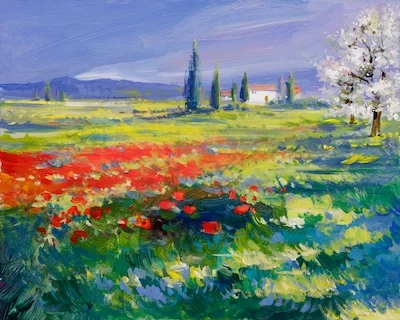Crocodile Tears
An ambiguous apology amidst a show that critiques society’s increasing corporate industrialization.

Babak Golkar, “Made in Canada,” 2018
steel, concrete and cedar, dimensions variable (courtesy Unit 17, Vancouver)
Passersby will get an eyeful if they glance in the window of Vancouver’s three-year-old commercial gallery, Unit 17, where a text-driven sculpture, Made in Canada, looks a lot like a highway destination sign.
Vancouver-based artist Babak Golkar made the 2018 work from steel, concrete and cedar, in part to mock the Canadian habit of apologizing. It reads: “We are sorry.” A smaller tab above adds the word “Forever.”
The piece was originally commissioned by the Dunlop Art Gallery in Regina as part of a Canada 150 anniversary project. Although its meaning is ambiguous, it was envisioned as an installation for Blaine Lake, Sask., near a historic site recognizing settlement by Russian Doukhobors, a pacifist communal sect that fled religious persecution in the late 1800s, but then faced suspicion from Canadian authorities.
Golkar’s work can be read as a response to that specific history, but it also assumes a larger context in Unit 17’s, Crocodile Tears, a group show that considers the West’s intensifying mechanization and industrialization. The show, to be displayed in three phases until April 12, critiques increasing corporate industrialization. “We are in crisis,” says the show’s statement. “This is our unapologetic position.”
1 of 3

Mike Bourscheid, “Frantz H.B.,” 2020
wood, leather, metal hardware, urethane rubber, fabric, Poly-Fil, hay, eggs, chicken feathers, frying pan, cutlery, metal skewers, poultry carving set in leather case, bulb of garlic and parsley, dimensions variable (courtesy Unit 17, Vancouver)
2 of 3

Mike Bourscheid, “Frantz H.B.,” 2020
wood, leather, metal hardware, urethane rubber, fabric, Poly-Fil, hay, eggs, chicken feathers, frying pan, cutlery, metal skewers, poultry carving set in leather case, bulb of garlic and parsley, dimensions variable (courtesy Unit 17, Vancouver)
3 of 3

Mike Bourscheid, “Frantz H.B.,” 2020
wood, leather, metal hardware, urethane rubber, fabric, Poly-Fil, hay, eggs, chicken feathers, frying pan, cutlery, metal skewers, poultry carving set in leather case, bulb of garlic and parsley, dimensions variable (courtesy Unit 17, Vancouver)
The exhibition title alludes to a myth that crocodiles weep while devouring their prey – an expression that eventually came to refer to displays of counterfeit emotion. But how sorry are Western societies really, the show asks, when people continue to live in unsustainable ways?
Not to mention the cruelty directed at non-human sentient creatures by the industrial food system. Mike Bourscheid’s 2020 sculpture Frantz H.B., is a bodiless figure given form by clothing that includes a cape, stockings and gladiator-style sandals that rest atop chicken cages. A frying pan, cutlery, metal skewers, garlic and parsley are attached to the cape. Bourscheid, who represented his home country of Luxembourg at the 2017 Venice Biennale, now lives in Vancouver, where he began making costuming a central part of his work. The show segues March 7 to the second of three phases.
1 of 3

Anne Low, “Paper eater,” 2019
wallpaper made in collaboration with Sylvain Sailly (printed by Handtrycka Tapeter, Stockholm), tissue paper, ribbon and hand-woven silk, 19.5” x 8.5” x 7” (courtesy Unit 17, Vancouver)
2 of 3

Anne Low, “Paper eater,” 2019
wallpaper made in collaboration with Sylvain Sailly (printed by Handtrycka Tapeter, Stockholm), tissue paper, ribbon and hand-woven silk, 19.5” x 8.5” x 7” (courtesy Unit 17, Vancouver)
3 of 3

Gabi Dao, “Curled Up in a Spiral,” 2017
polystyrene, resin, wood filler, audio, soap and eye shadow pigment (courtesy Unit 17, Vancouver)
The first phase (other pieces now on view include 2019 Sobey Art Award finalist Anne Low’s Paper eater, 2019, and Gabi Dao’s Polished Like a Shell, 2017) will be removed so works by another group of artists can be installed. The final changeover will occur March 27.
The roster of artists includes Alan Belcher, Lucien Durey, Deborah Edmeades, Neil Haas, Karilynn Ming Ho, Nadya Isabella, Shahin Sharafaldin, Douglas Watt and others.
Ultimately, Crocodile Tears tries to be hopeful. As the show’s statement notes: “Out of ashes, we had ghosts. And with time, we come back to seeds sprouting from our compost with limitless possibility and intersection.” ■
Crocodile Tears is on view at Unit 17 in Vancouver from Jan. 31 to April 12, 2020.
PS: Worried you missed something? See previous Galleries West stories here or sign up for our free biweekly newsletter.
Unit 17
2954 West 4 Avenue, Vancouver, British Columbia V6K 1R4
please enable javascript to view
Thurs to Sun noon - 5 pm or by appointment
